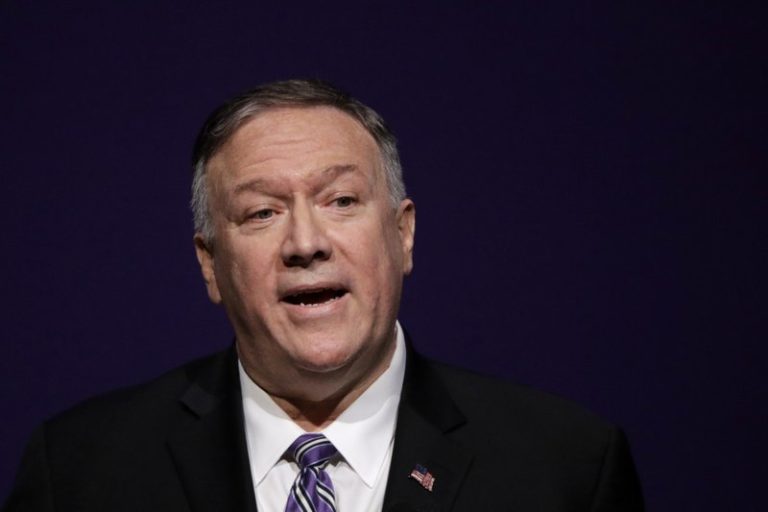The Trump administration is stepping up its campaign to get other nations to boost pressure on Iran as world leaders prepare to meet at the United Nations this month. Even as President Donald Trump dismissed his hawkish national security adviser John Bolton, the administration pressed ahead with accusations of Iranian untrustworthiness and deceit.
The administration says the world should take action on Iran’s non-compliance with the 2015 nuclear deal amid new questions about Iranian activities raised by the U.N. atomic watchdog. The U.S. has been ratcheting up its own sanctions on Iran since Trump withdrew from the nuclear deal last year.
Secretary of State Mike Pompeo said Tuesday that Iran is trying to deceive the world by refusing to fully cooperate with the International Atomic Energy Agency. The effort comes two weeks before the annual U.N. General Assembly session at which Iran is expected to be a major agenda item amid efforts by France to convince Trump to meet Iranian leaders.
“The Iranian regime’s lack of full cooperation with (the IAEA) raises questions about possible undeclared nuclear material or activities,” Pompeo said in a tweet. “This fits into Iran’s 40-year pattern of lies. The world won’t fall for it. We will deny the regime all paths to a nuclear weapon.”
Shortly before Trump on Tuesday announced his departure by tweet, Bolton denounced Iran.
“Now that we’re two weeks from UNGA, you can be sure Iran is working overtime on deception,” he said.
The comments were prompted by a meeting of the IAEA Board of Governors on Monday at which the agency’s Acting Director General Cornel Feruta said he had told Iranian officials of the importance of “full and timely” cooperation with it on a visit to Tehran. That visit came after IAEA inspectors reportedly found traces of nuclear material at a warehouse identified by Israeli intelligence as an undeclared nuclear facility.
“I also stressed the need for Iran to respond promptly to agency questions related to the completeness of Iran’s safeguards declarations,” Feruta said.
A recent IAEA report suggested Tehran wasn’t as forthcoming with answering questions as the agency hoped. The U.S. and Israel say Iran’s responses raise new questions about its nuclear intentions. Iran denies wanting to develop atomic weapons, but its previous atomic work sparked global concerns, prompting the Obama administration to enter negotiations that led to the 2015 deal.
Trump campaigned on pulling out from the accord, which he called the worst in history because many of the restrictions that Iran agreed to in exchange for billions of dollars in sanctions relief were set to eventually expire.
Amid the new questions over the warehouse, Iran has announced that it is preparing to use more advanced centrifuges than allowed in another breach of the slowly unraveling deal. The IAEA confirmed the installation of new centrifuges and said they had been prepared for testing. Iran has already pushed past limits set in the 2015 deal on nuclear enrichment purity and stockpiles of enriched uranium.
Iran says it’s taking the actions because the other participants in the deal have not stepped up to make up for the U.S. withdrawal and reinstatement of sanctions. Iranian officials have repeatedly argued that the U.S. violated the agreement first by pulling out.
As tensions have increased over the sanctions and Iran’s response, French President Emmanuel Macron is seeking to salvage the deal by creating a $15 billion line of credit for Iran to entice it to remain in the nuclear deal and arranging a meeting between Trump and Iranian President Hassan Rouhani, possibly at the upcoming UNGA, which begins Sept. 23.
Iran hawks in Washington, including Bolton, and elsewhere have expressed alarm at Trump’s apparent willingness to agree to such a meeting.
“It could happen,” Trump told reporters on Monday. “No problem with meeting. Iran should straighten out, because frankly they are in very bad position right now and they should straighten it out because they could straighten it out very easy.”
(AP)










